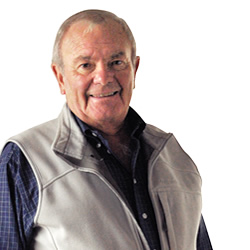The entrepreneurial spirit
I noticed a headline in a CICA (Canadian Institute of Chartered Accountants) Research Monitor Newsletter, that spurred my interest. The headline was: “Ten things top entrepreneurs do differently.” I think all of us in business wonder at times what motivates us and how we stack up with our peers.
Try the following self-test from an article by Colleen McMorrow, Ernst & Young LLP. She starts out by saying: “There’s no entrepreneurship gene. But a new Ernst & Young survey shows leading entrepreneurs do share common traits, beliefs and approaches that empower them to drive innovation—and economies—around the world.”
1. They’re made, not born: Fifty-eight per cent of entrepreneurs we surveyed have “transitioned” to entrepreneurship, and one-third say their experience as an employee enabled them to build a successful enterprise of their own.
2. They believe knowledge should be shared: More than three-quarters of Canadian respondents are mentoring other entrepreneurs in some form. They believe collaborating benefits both the teacher and the student.
3. They know keeping an eye on the cash prize pays off: Accessing funding is the top challenge facing entrepreneurs today, and a real stumbling block to startup success. Those who succeed do so by building strong relationships and thinking outside the financing box.
4. The best realize there’s no ‘I’ in team: Good entrepreneurs surround themselves with good people who have the technical and business skills to take the company forward, but also share the leader’s values.
5. Success can mean choosing between being rich and being king: All founders of growing companies face a central decision—do they desire wealth or satisfaction from hands-on involvement? Successful entrepreneurs navigate this carefully and move according to their ultimate goal.
6. Some see opportunity where others see disruption: Success lies in the way entrepreneurs view the world. Even disruptions like the financial crisis generated opportunities for entrepreneurial leaders willing to take them. Our survey reveals entrepreneurs have at their core a unique way of viewing the world around them and acting on that view.
7. Failure is best worn as a badge of honour: Early business failures should be seen as providing vital experience for future successes.
8. True entrepreneurs are architects of their own vision: Seventy-six per cent of those surveyed peg vision as the top quality of successful entrepreneurs. Those who succeed have helped people come together around a common purpose to achieve a goal. This comes from a vision owned not only by the people in the business, but also by investors, customers, suppliers and all those the organization touches. The entrepreneurial leader must be the architect of that vision to succeed.
9. Entrepreneurs succeed by seeking to be better: Although innovation is important, filling niches and market gaps does not need to involve radical new solutions. Often, an entrepreneurial business can simply fit a better business model or a more effective way of delivering a product or service. Pushing products, services and people to be better is at the core of the entrepreneur’s being.
10. They balance blue skies with the bottom line: To be an entrepreneur, you must not only be an opportunist, but also be an optimist. The world’s best entrepreneurs see opportunities and truly believe they can create ways to profit from them. Maintaining a deep-rooted sense of optimism doesn’t mean you are unrealistic. But it does allow entrepreneurs to push their ideas harder, sometimes giving them a competitive edge.
So how did you do? Did you find some common traits, beliefs and approaches with the entrepreneurs in the survey? There have been studies for decades trying to unlock the secret to business success. From my experience in public practice as a chartered accountant for 30 years, people either had the knack for business success or they didn’t and there was no course or degree that seemed to be able to change that. Education certainly helped those with a knack for business but did not seem to create it.
Even if there is no secret definition for a real entrepreneur, it is interesting to see what drives others, what abilities they have and perhaps recognize some not so good ambitions at times. Then as a unique individual we can work toward improving our own abilities and ambitions.






Comments